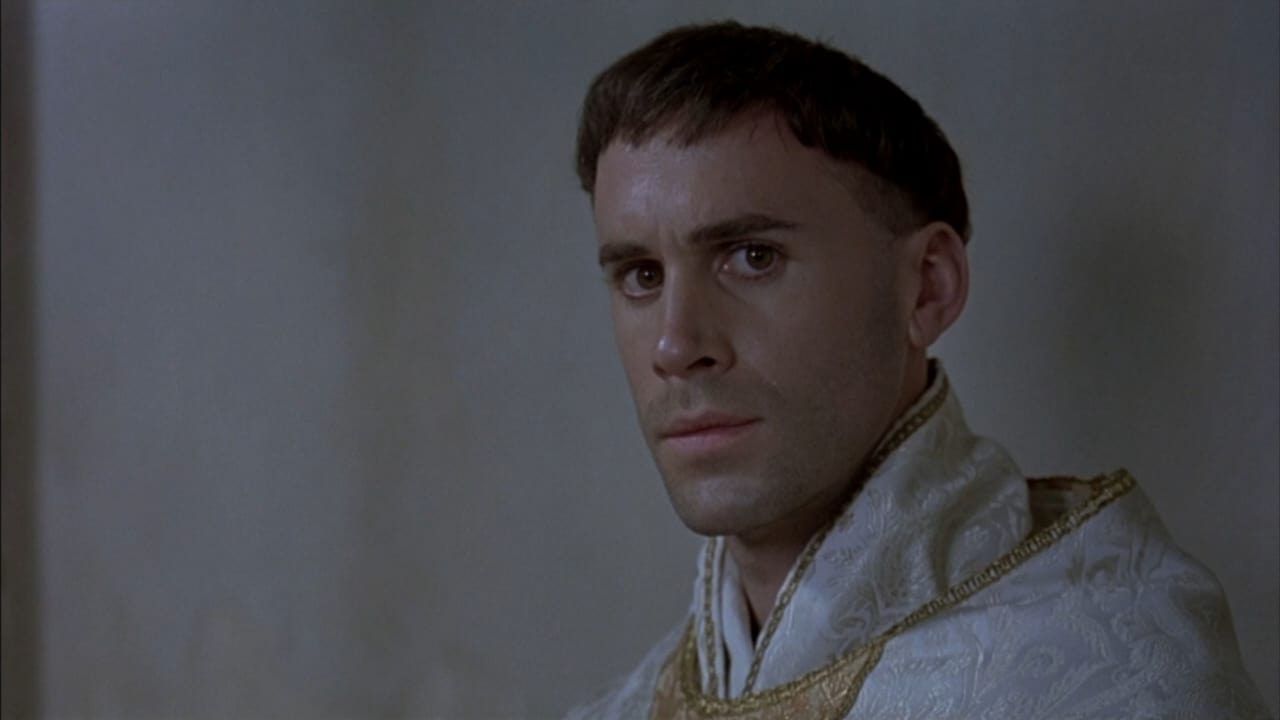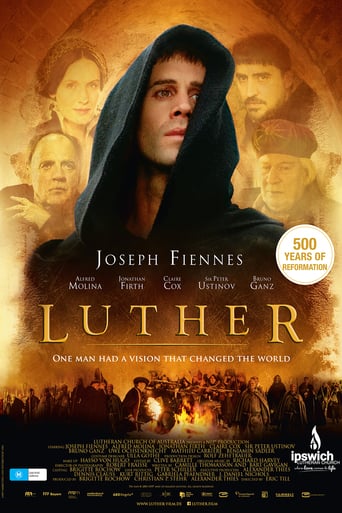

Idris Elba emerced himself into this role so well he really could be no-one else but Luther for me ever. Top quality drama from the very start.
... View Moreone of the films who in easy way could be defined as a wise work. because it is a religious, political and religious film, in same measure, but its first virtue remains the high honesty about a not comfortable theme and the great cast. a portrait of Martin Luther. clear, fresh and out of ambiguity. because it is the story of a profound vulnerable man fighting for a vision about the Church out of any ambiguity. and this detail did "Luther" a profound useful film. because it has a large target. because it did not represent the voice of a Church but the delicate reconstruction of a struggle with deep social impact, not just heroic but necessary. plots and relations between different people and a form of heroism without hero. because the purpose is to define a period and its challenges. and, sure, the right answers.
... View MoreA Great Educational film from start to finish, discovering that faith in Christ Jesus alone saves and not by any works we do, tho we do good works not to merit salvation, but in appreciation of Christ's finished work on Mt. Calvary, and the persecution we endure for steadfast faith in Gods divine word, I pray God will give us the courage to stand without compromise in his divine will like Luther, Tyndale and a host of others did in centuries past, 'For by grace are ye saved through faith; and that not of yourselves: it is the gift of God: not of works, lest any man should boast.'Ephesians 2:8,9 (Authorized (King James) Version)
... View MoreFolks who have never read the whole Bible, and those who don't accept it as the only reliable source of information about God, will not find this historically accurate portrayal of Christianity's rejection of man-made religion as appealing. Truth is often most inconvenient. As Christ conveyed, to the saved, servants like Luther will be the "fragrance of Christ"; to the unsaved, he will be as the "smell of death." The only shortcoming in this moving biography is the lack graphic attention to Catholicism's vicious persecution of genuine Christians (belief in 'Sola Scriptura' was, and today still is, deemed as heresy). This powerful movie may properly have been called 'The Rejection of Babylon the Harlot' as detailed in Rev. 17.
... View More